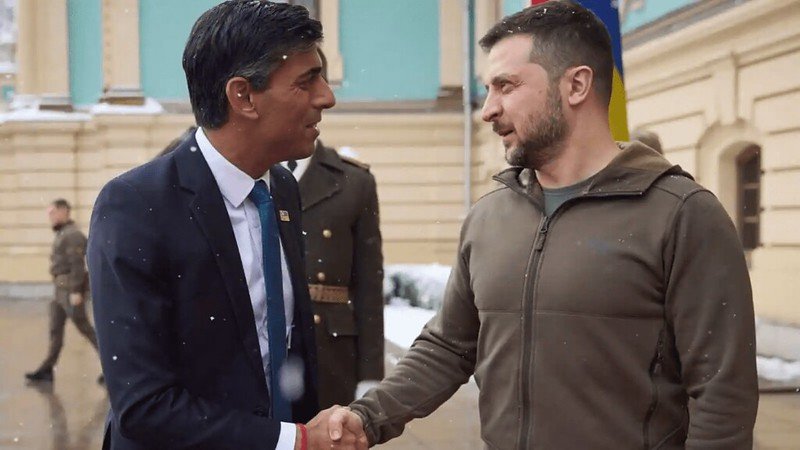The author of the captioned book Mr. Robert H. Schuller is a televangelist, pastor, a motivational leader, and writer. His television program ‘The Hour of Power’ is one of the most widely viewed programmes in USA. He has bestowed upon mankind some of the exceptional books like Living Positively One Day at a Time (1986), Success Is Never Ending, Failure Is Never Final (1990), Life’s Not Fair, But God Is Good (1991), etc. It is a seminal work of the author which indicates how to conquer unsurmountable problems of life with the help of strong self belief, possible thinking, dare to dream and attending the situation creatively and constructively.

“Tough situations or times are temporary so it never last, but in normal situations or even in hardest situations some people never give up. So they are called as tough people who are highly dedicated and become tougher than the situations. In life difficult times never come knocking the door, it will always come out of the blue when you will be least expecting it or when you are least prepared to encounter. Let’s face it! People face various situations in life. No one wants to struggle. No one wants to even admit their struggling. We all want to have Photoshopped versions of our own lives that fit perfectly into an Instagram square. But life does not work like that. Every one of us will be facing with a variety of tough times in our life. These are of few things, which we can really count on while combating tough times.
- It builds character: Nothing builds our strength like surviving difficulty. It is just like an “Ounce of experience is heavier than tons of theory”. Unless we face the troubled situation, we cannot build our mettle. Nothing forces us to leverage what we have, dig deep and come up with every ounce of integrity, patience and strength like a hard time.
- Always focus on those unmovable pieces in our life that really matter much. Stop worrying about everything. Anything that is nailed down to the floor will surely go flying.
- We manage ideas when, we minimize waste and maximize development of our inner latent abilities. There exist 2 types of thinkers: Possibility thinkers; Impossibility thinkers. A possibility thinker has ability to make an option out of an idea. Among the many things Impossibility thinkers, allow following to control their life.
- They fail to act upon an idea because they fear others judgment over them. The freedom of mind &action.( The story of freedom: A farmer who used to daily cross the garden felt bad for the poor bird and decided to do something. So one night he sneaked into the garden and opened the gate of the golden cage. But to his surprise the bird was unwilling to leave the cage. The farmer, adamant on freeing the bird, grabbed it and hurled it into the sky. Done with his noble deed the farmer returned home feeling proud. The next day as he crossed the garden, he heard a parrot’s voice shouting ‘Freedom’. He peeked inside to garden and to his utter disbelief, saw the bird back in its cage. The door to the cage was wide open and the bird sat inside shouting gleefully.
- Beliefs from the past that can not fit into their lives. They only become truths when tested by them.(seeing is believing)
- Impossibility thinkers believe they can’t fly. They use limits as complaints reason, instead of using their inner ability into overcoming that limit. (Limiting beliefs).
- They are crowned with a cap with petals of F’s in their life such as frustrations, fantasies, fears ie fear of failure, fatigue, faults, facts, fates, forecasts, foes, etc.
In the other hand possibility thinkers train themselves to reframe problems and barriers in ways that lead to discovering the inherent good in them. Possibility thinking is all about being able to master every idea coming through their mind & heart and then working fully committed with consistency, to making that idea a reality. There are 10 Commandments of “Possibility Thinking “
Never reject a possibility because: You see something wrong with it. /You won’t get credit./It’s impossible/your mind is already made-up/You cannot change the situation./You don’t have time to do it./It may create conflicts./ It doesn’t fit into your lifestyle or beliefs./ It might fail./ You assume someone else will just do it,
Example-I: Let us compare with this philosophy. After potatoes have been harvested they have to be spread out and sorted in order to get the maximum market value. They are divided according to size—big, medium, and small. It is only after potatoes have been sorted and bagged that they are loaded onto trucks. This is the method that all potato farmers use—all but one. One farmer never bothered to sort the potatoes at all. Yet he seemed to be making the most money. A puzzled neighbor finally asked him, “What is your secret?” He said, “It’s simple. I just load up the wagon with potatoes and take the roughest road to town. During the Tent- mile trip, the little potatoes always fall to the bottom. The medium potatoes land in the middle, while the big potatoes rise to the top.” That’s not only true to potatoes. It is a law of life. Big potatoes rise to the top on rough roads, and tough people rise to the top in rough times.
Example-II: Former President A.P.J. Abdul Kalam, becoming a fighter pilot was a “dearest dream” but he failed to realize it by a whisker as he bagged the ninth position when only eight slots were available in the Indian Air Force. In his book “My Journey: Transforming Dreams into Actions” when he failed to make it as an IAF pilot and how he pulled himself up and rose to become the man who headed India’s missile programme and occupy highest office in the country. When he became the President of India, once he told the Air Chief to teach him how to fly and he trained him for six months. He did not become a pilot but he could still fulfill his dream of flying, because he dreamt that he will fly. Dreams transform into thoughts and thoughts result into action,” A tough person can do that.
बिना चोट खाए पत्थर भी भगवान नहीं बन सकता
Conclusion: If we want to emulate as tough person practice following
We learn courage – when we face danger. We learn patience – when we endure suffering. We learn tenderness – when we taste pain. We learn to prize true friends – when false ones forsake us. We treasure health – when illness strikes. We learn to prize freedom – when we are in danger of losing it. Trust the sunshine doesn’t trust clouds. Don’t set compass by the flash of lightning, set it by the stars. Believe in your dreams, don’t believe in despairing thoughts. Have faith in your faith and doubt your doubts. Trust in your hopes, never trust you’re hurt. Without trouble we would be like plants that have sprouted, grown, and been nurtured in the overprotected shelter of a hot house — too tender ever to live in the open.
*T. P. Misra, Former Principal and Deputy General Manager
Baroda Apex Academy, Bank of Baroda. Can be reached at misratp@rediffmail.com

Author Profile

Latest entries
 Reviews11 July 2021Change your thoughts, Change your life.
Reviews11 July 2021Change your thoughts, Change your life.Business14 February 2021Role Induced Stress
 Opinion10 May 2020Tough times never last, but tough people do!
Opinion10 May 2020Tough times never last, but tough people do!














